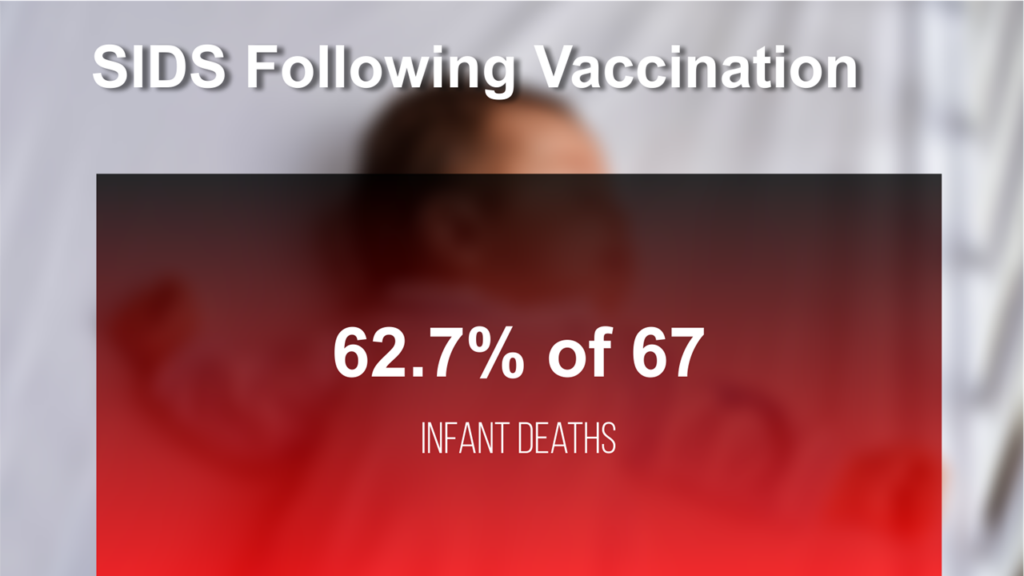Wins for Gender Sanity and a Win for our Rights
Source: The Iron Wire
(0:00 - 1:02) Good evening, I'm Will Dove and these are the top stories for Thursday, April 17th. A lawsuit has been launched against the Canadian federal government aiming to halt the practice of forcibly confining female inmates with trans-identifying male inmates in federal prisons. The legal action, initiated by the Justice Centre for Constitutional Freedoms on behalf of the national organization Canadian Women's Sex-Based Rights, caWsbar, argues that this policy constitutes cruel and unusual punishment and infringes upon the charter rights of female prisoners. The lawsuit was filed with the Federal Court of Canada in Toronto on April 7th. C-A-W-S-B-A-R, which has been advocating since 2019 for the protection of sex-based rights for women and girls in Canada, is challenging the Correctional Service Canada's Commissioner's Directive 100 Gender-Diverse Offenders. This directive allows for the transfer of trans-identifying male inmates to any of the six women's prisons across the country. (1:03 - 2:11) The practice of housing trans-identifying males in women's prisons stems from changes made in 2017 when Parliament passed Bill C-16. This legislation amended the Canadian Human Rights Act and the Criminal Code to include gender identity and gender expression as prohibited grounds of discrimination. Consequently, Correctional Service Canada implemented policies permitting the transfer of males who identify as women into women's prisons, regardless of whether they have undergone surgical transitions. The lawsuit contends that this policy violates several sections of the Canadian Charter of Rights and Freedoms. Specifically, it argues that the practice infringes on Section 7, which guarantees the right to life, liberty and security of the person, Section 12, which protects against cruel and unusual treatment or punishment, and Section 15, which ensures equality before and under the law, without discrimination based on sex. Supporting the lawsuit's claims, research from the Macdonald-Laurier Institute in 2023 revealed that over 90% of trans-identified male prisoners were incarcerated for violent offences. (2:12 - 5:19) Of these, nearly half were convicted of homicide-related crimes, and a third had committed sexual offences. The court documents detail numerous instances of physical and psychological harm suffered by female inmates as a result of being confined with trans-identifying males. These include sexual assaults, sexual harassment, physical beatings, stalking and grooming. The lawsuit also notes that female prisoners are often reluctant to report these incidents due to fear of retaliation or being labelled as transphobic, which could negatively impact their parole prospects. Prior to 2017, only males who had completed sex reassignment surgery were eligible for transfer to women's prisons. However, the passage of Bill C-16 and subsequent policy changes have led to the current situation, which caWsbar and other advocacy groups argue is ideologically driven and harmful to female inmates. Randy Hillier, a former Ontario MPP, won a significant legal victory on April 7 when the Ontario Court of Appeal ruled that Ontario's 2021 COVID-19 lockdown regulations, which banned outdoor gatherings including peaceful protests, unjustifiably violated the Canadian Charter of Rights and Freedoms, Section 2C, the right to freedom of peaceful assembly. Hillier faced multiple charges and fines for organizing and attending peaceful anti-lockdown protests in places like Kempville, Cornwall and Smiths Falls during April and May 2021, when Ontario's rules prohibited even two people from gathering outdoors for protests while allowing exemptions for weddings, funerals and religious services. Hillier challenged the regulations, arguing they infringed on his Charter rights. A lower court in November 2023 dismissed his challenge, deeming the restrictions constitutionally valid. However, the Court of Appeal, in a unanimous decision by Justices Lowers, Zarnett and Pomerantz, overturned this. Finding the ban on protests was not minimally impairing as required by the Oakes Test. The Court noted Ontario failed to consider exemptions for peaceful outdoor protests, despite tailoring restrictions for religious gatherings, and provided no evidence that such protests increased COVID-19 risks. The ruling emphasized that peaceful assembly is elemental to democracy and that virtual gatherings cannot replace in-person protests. Hillier was represented in this case by lawyers from the Justice Centre for Constitutional Freedoms. I'm joined now by John Carpay, President of the JCCF, to explain what this means for our right to peaceful assembly. John, welcome back. We had an interview actually very recently, just last week, where we were talking about the Tamara Lich-Chris Barber case and the very disappointing verdict, but there's good news. Recently, the JCCF won a landmark case in Ontario. Randy Hillier, on appeal. Please tell us about that case, John. (5:20 - 7:17) So Randy Hillier was a former member of Ontario's Provincial Parliament, and he spoke at and participated in and helped to organize a bunch of peaceful protests. Ontario, in April of 2021, imposed this stay-at-home order where people had to actually stay at home unless they had one of 20 reasons to leave the house, like shopping for groceries, whatever. And the government did allow up to 10 people outdoors for a wedding or funeral service or religious service, but zero people for a peaceful protest. And so we lost at trial. We had a terrible decision where the judge completely ignored lockdown harms and just kind of gave the blanket stamp of approval on the lockdown measures. We did a very narrow appeal to the Ontario Court of Appeal on the issue of freedom of peaceful assembly. And we pointed out that Ontario provided no evidence that they gave any thought to this fundamental charter freedom, and that it's just as important as conscience and religion, expression, association. And the government did consider religious freedom when they put restrictions on worship, but they gave no consideration at all to peaceful assembly. So it was actually illegal in Ontario in April and May of 2021 for two people to gather outside to protest peacefully. That was illegal. They couldn't even have 10 people like what you could for a funeral or a wedding. So we got this ruling from the unanimous, by the way, from the Ontario Court of Appeal, which is after the Supreme Court of Canada, it's considered to be the most prominent, most influential court in Canada. (7:18 - 8:26) Unanimous decision, all three judges said that Ontario unreasonably, unjustifiably violated the charter freedom of peaceful assembly. So my understanding then would be that if they were to, hopefully never happens, but try to do lockdowns on us again, this decision would mean that those of us who want to protest that would have a right to gather in public in large groups and have a demonstration. Is that what this decision would mean? It would help to bring about that result. Now the unfortunate part of it, you know, nothing is black and white in this world. The court implied that if Ontario had allowed outdoor protests of 10 people, Ontario would probably have won the case. So it's not, you know, it's not the absolute victory that is going to ensure that if there's future lockdowns, you know, based on false fear mongering, that we've got this guaranteed right to protest in large numbers. (8:26 - 10:34) Having said that, if people do protest in large numbers, practically speaking, it's pretty difficult for police to arrest two or 3,000 people that are gathering together. And so, you know, there's the practical dimension that always remains very important. That's a very good point. So that means if in my understanding correctly, your explanation, should they ever try to do this again, these lockdowns, given this case, they would have to set some sort of limit on the number of people who could gather. They would have to give a good reason why they've set that limit. Is that about correct? Yes. Although we have a lot more work to do in the courts to bring the standard back up to where I believe it was before lockdowns. I mean, we've had years now where courts have ruled, they've written the media narrative into their court rulings when there's no evidence had been placed before the court to support the ruling. So this is a glaring problem that's going to take a long time to fix. But it's positive to see a court fairly embrace the importance of a charter of freedom. What I like most about the decision is the attitude. There's an attitude that charter freedoms are important. There's one passage in there that said that a national emergency is not, I'm paraphrasing, it's not an exact quote, but an emergency or a crisis is not an excuse to forget about constitutional freedoms. There's something to that effect in there. So what I really like about the decision yeah, there's a substantive outcome that we've got a victory where lockdown measures are struck down as an unjustified violation of a charter of freedom. So that's great. But it's this attitude of concern where the judges seem to care about a charter of freedom. That's very refreshing after we've gone through several years where court rulings do not reflect that attitude. (10:35 - 11:08) And you and I have had many discussions about what's going on in our courts and all of these decisions that have violated our rights. But it seems from my perception, because this isn't the only victory that's happened, the longer it goes on, the more time we get from that supposed health emergency, the more likely it appears that the courts will find in favor of our rights. Is that your perception as well, John? Well, as I've explained in my book, Corrupted by Fear, I think that the judges fell prey to fear in the same way that the rest of the population did. (11:08 - 12:32) And obviously, I don't know for sure what's going on in the hearts and minds of judges, but they certainly behaved as though they were corrupted by fear when they wrote their court rulings and wrote very fear-based decisions and made it easier for governments to violate our rights and freedoms. And I agree, as we are now five years away, a little bit more than five years away from lockdowns, I think some of the judges are starting to relax a little bit and starting to think harder, because when people are afraid, they don't think. If you're full of fear, you want a simple, easy solution. And fear inhibits rational discussion and honest debate and clear thinking. So as we are moving away from the media fear-mongering that was so dominant I think all people, including judges, are left full of fear now. And I think that that's going to lead to better court decisions going forward. Thank you so much, John. And viewers, you will find a link beneath this report to my interview not long ago with John Carpe on his book, Corrupted by Fear. And you'll also find a link to the JCCF, where you can donate to their efforts. Thank you, John. Thank you, Will. A new win for gender sanity came today from a most unexpected quarter. (12:33 - 13:28) Britain's Supreme Court ruled today that the term woman in the 2010 Equality Act refers exclusively to biological sex, not gender identity. The unanimous decision followed a challenge by For Women Scotland, which argued gender self-identification threatened single-sex spaces. Labour Health Minister Karin Smith welcomed the clarity, stating public bodies will receive updated guidance. Concurrently, British Transport Police revised their strip search policy, banning trans women without gender recognition certificates from conducting intimate searches on biological females. Deputy Chief Constable Alistair Sutherland cited the Supreme Court ruling as justification, offering affected officers access to a well-being hub. Human rights group Sex Matters praised the change, calling previous policies humiliating for female officers. (13:28 - 14:26) The ruling is surprising, given how woke the UK has become in recent years. Let us hope this will lead to other similar rulings here in Canada, such as the one our first story today about the case being brought by the JCCF on trans prisoners. Also this week, Hungary's parliament passed its 15th constitutional amendment since 2011, recognizing only male and female sexes while banning LGBTQ plus public events. Prime Minister Viktor Orbán's Fidesz party secured a 140 to 21 vote to prioritize children's moral development over assembly rights. Critics, including the Hungarian Civil Liberties Union, condemned the move as humiliating for transgender and intersex individuals. The amendment formalizes March legislation authorizing facial recognition surveillance at banned gatherings like Budapest Pride, with fines up to 481 euros. (14:27 - 14:58) Government spokesperson Zoltán Kovács claimed the changes reflect biological reality, but opposition lawmakers accused Orbán of stoking anti-LGBTQ plus sentiment to rally his base ahead of 2026 elections. That is all for today's top stories. Be sure to watch my interview, posted today, with Dr. Sabine Hazan on her groundbreaking research into the gut microbiome and how it may, in time, prove to be the solution to many health problems plaguing our society today.










